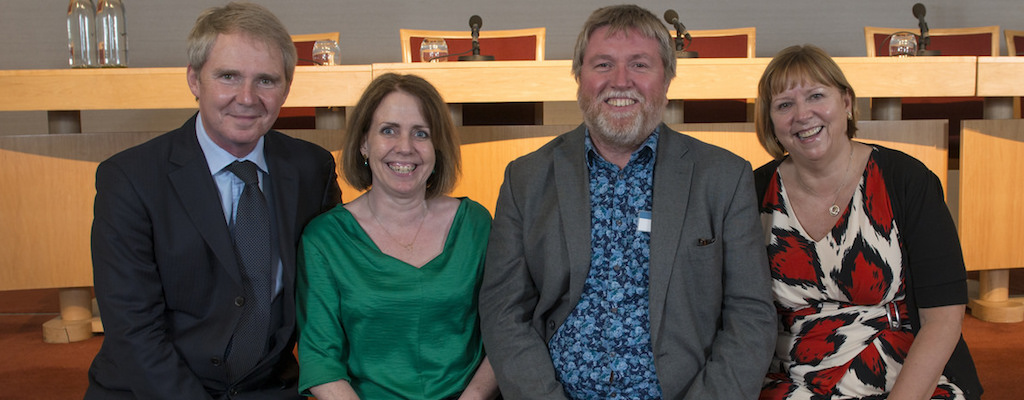
The Web Science Institute (founding directors pictured) invited me to its event on personal data, privacy and security in London this week. The event marks the Institute’s first birthday, and I joined Dame Professor Wendy Hall and Sir David Omand to discuss the recent statement from The Global Commission on Internet Governance.
The Commission was established in January 2014 to articulate and advance a strategic vision for the future of Internet governance. In its statement for the Global Conference on Cyberspace meeting in The Hague in April, the Commission calls on the global community to build a new social compact between citizens and their elected representatives, the judiciary, law enforcement and intelligence agencies, business, civil society and the Internet technical community, with the goal of restoring trust and enhancing confidence in the Internet.
The statement asserts:
The social compact [for a digital society] will contribute to a new kind of “collaborative privacy and security.” The term highlights a fundamental truth about the Internet: every part of the Internet ecosystem affects every other part.
And
[The compact] is about ensuring that a framework exists where each actor has the responsibility to act not only in their own interests, but also in the interest of the Internet ecosystem as a whole.
As you might determine from the short presentation that helped frame my contribution (below) I believe that the health of the Internet and the sustainability of a social compact for privacy and security demands an empowering ‘adult-adult’ context rather than a paternalistic ‘parent-child’ dynamic. It’s a complex adaptive system. It’s about privacy and openness. It’s about coveillance and socioveillance not hyper-surveillance.
You won’t be surprised to hear that I concluded my presentation with reference to the hi:project; just take the first sentence of the quote above and turn it round:
A new kind of “collaborative privacy and security” will facilitate the social compact [for a digital society].
The hi:project offers just such a private, secure, collaborative, open, accessible and decentralized architecture.
The Commission reports April 2016.
[Image source. Professors Sir Nigel Shadbolt, Les Carr, Susan Halford, Dame Wendy Hall, at the 2014 launch of the Web Science Institute.]
One thought on “We need a social compact – The Global Commission on Internet Governance”
Comments are closed.